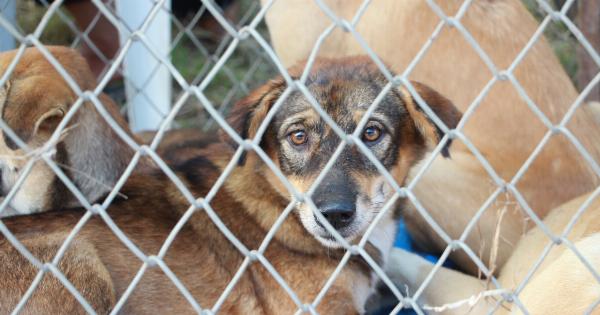The Revised Animal Abuse Law has been a significant development in the fight against cruelty towards animals.
This legislation aims to protect and safeguard the well-being of animals, ensuring that those who inflict harm or cause unnecessary suffering are held accountable for their actions. In this article, we will explore the key elements of the revised law, its implications, and the steps being taken to enforce it effectively.
What Led to the Revision of the Animal Abuse Law?
The need for a revised animal abuse law arose due to the alarming increase in incidents of cruelty and neglect towards animals. Previous legislation was often inadequate and failed to adequately punish offenders.
This led to public outcry and heightened awareness about the urgent need for stronger protections for our animal companions.
Scope of the Revised Law
The revised animal abuse law extends its scope to cover a wide range of animals, including domestic pets, farm animals, and wildlife. It recognizes that all animals have intrinsic value and deserve to be treated with kindness and respect.
The law also addresses various forms of abuse, such as physical abuse, neglect, abandonment, and animal fighting.
Penalties and Consequences
One of the fundamental aspects of the revised law is the introduction of stricter penalties and consequences for offenders. Individuals found guilty of animal abuse can now face significant fines, imprisonment, or both.
Additionally, the law allows for the confiscation of animals from abusive owners and their placement in safe and nurturing environments.
Training and Education Initiatives
Recognizing the importance of education and awareness, the revised animal abuse law places emphasis on training and education initiatives.
Responsible pet ownership, animal welfare, and compassion towards animals are promoted through various programs and campaigns. These efforts aim to create a more compassionate society that understands the importance of treating animals with kindness.
The Role of Animal Welfare Organizations
Animal welfare organizations play a crucial role in supporting the implementation and enforcement of the revised animal abuse law.
They work closely with law enforcement agencies, providing assistance, shelter, and rehabilitation services to animals affected by abuse. These organizations also advocate for stronger legislation and lobby for stricter penalties for offenders.
Challenges and Enforcement
The enforcement of the revised animal abuse law presents significant challenges. Limited resources, lack of public awareness, and the difficulty in detecting and prosecuting perpetrators pose obstacles to effective implementation.
However, through collaborations between law enforcement agencies, animal welfare organizations, and concerned citizens, efforts are being made to overcome these challenges and ensure greater protection for animals.
Public Support and Activism
The revised animal abuse law has garnered substantial public support and activism. Individuals and organizations across the country are actively raising awareness about the issue, organizing protests, and advocating for change.
This collective voice has been instrumental in driving reforms and bringing about a societal shift towards greater compassion and empathy for animals.
International Efforts and Cooperation
Cruelty towards animals is not confined to national borders. Recognizing the need for global cooperation, efforts are being made to establish international agreements and collaborations to combat animal abuse on a larger scale.
Sharing knowledge, resources, and best practices across countries can help create a united front against animal cruelty.
Conclusion
The revised animal abuse law marks a significant step forward in the protection of animals. By recognizing their intrinsic value and strengthening penalties for offenders, it sends a clear message that cruelty towards animals will not be tolerated.
However, the successful implementation of this law relies on collaborative efforts between authorities, animal welfare organizations, and the public. Together, we can ensure a safer and more compassionate world for all living creatures.






























